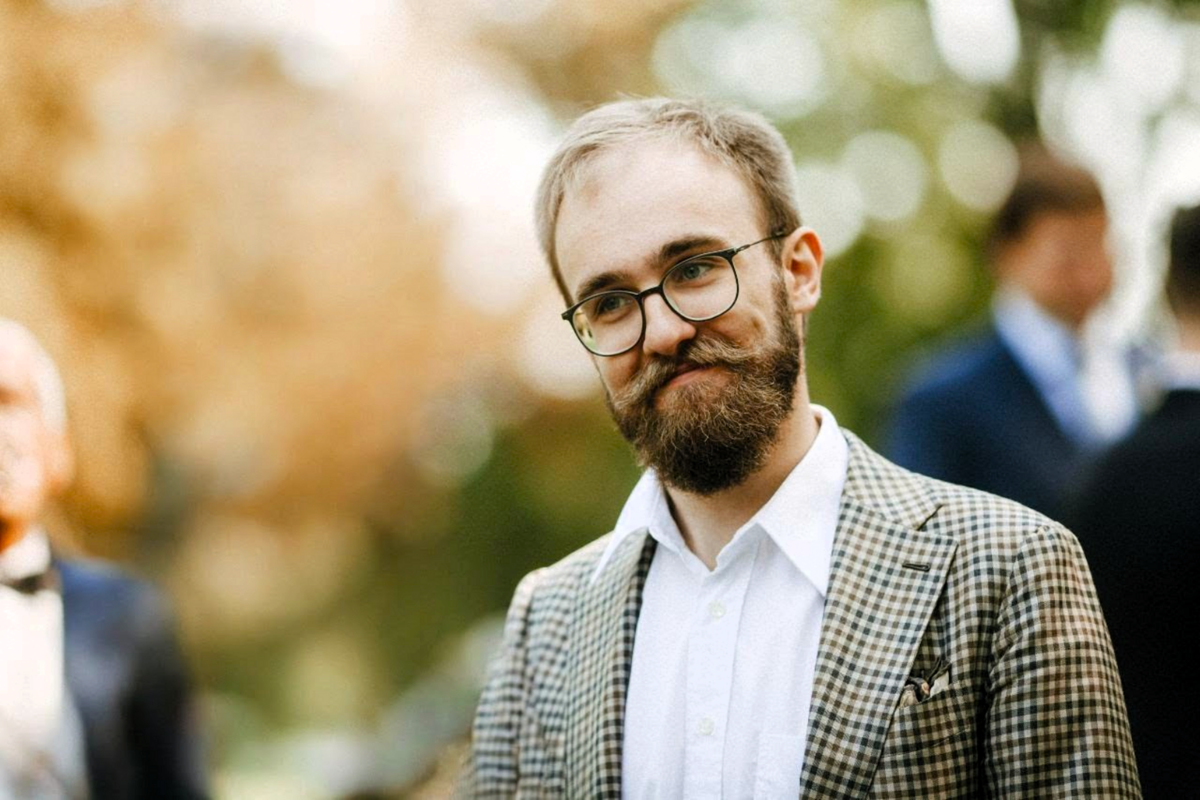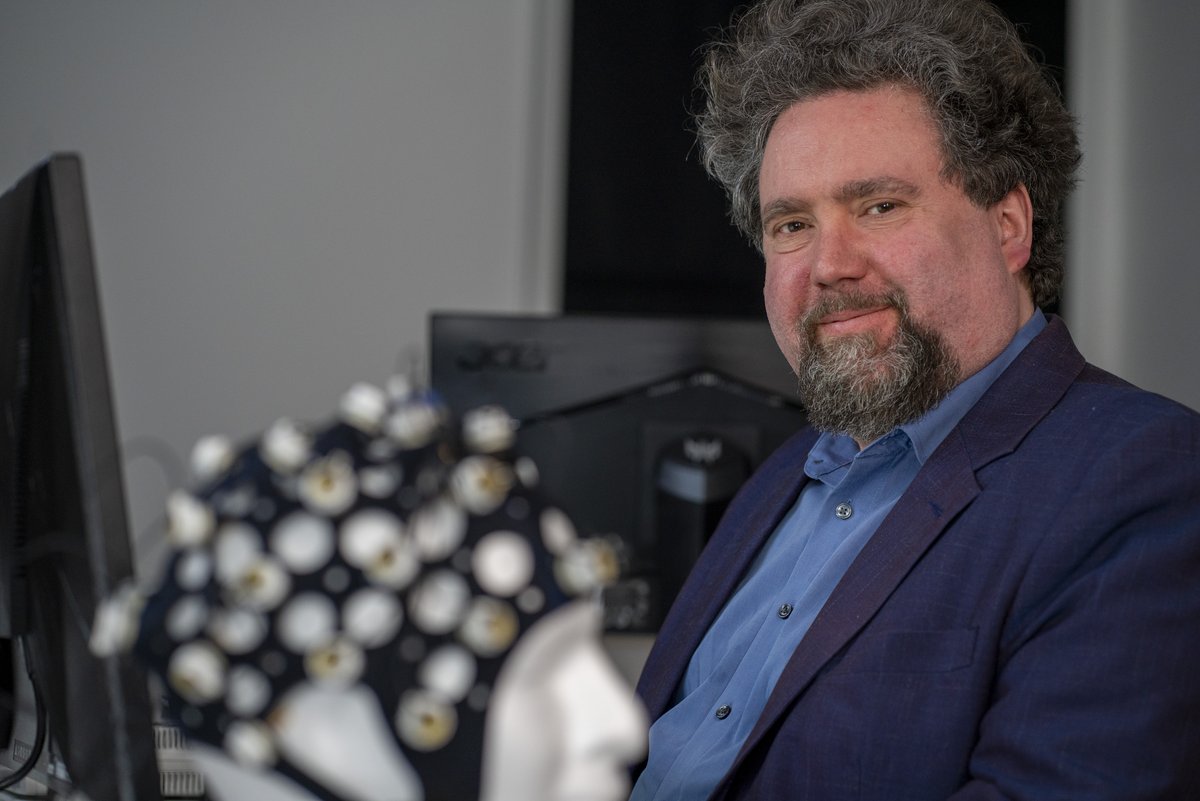BTU scientists among the "100 most important minds in Berlin science"
In a major science special, the Tagesspiegel honours the "100 most important minds in science in the capital in 2024" from a wide range of chairs. The motto of the list: They shape the science of tomorrow with innovative research, excellent teaching and great commitment and stand for the high level of innovation and scientific excellence that characterise our region.
The honoured BTU scientists:
Danica Petrović: As a recent graduate of the Cottbus Master's degree programme in Architecture, she is the youngest BTU representative to be included in the list. In her master's thesis on the protection of historical monuments in Berlin, she developed proposals for the appropriate reuse of the cinema and hotel L'Aiglon in Berlin-Wedding. She was awarded the Berlin 2024 State Monument Office study prize for her work. During her studies, she gained valuable experience as a research assistant in the project "Buildings of the Occupation Period in West Germany, 1945-1955", funded by the German Research Foundation. She is currently in a leading position for the Emerging Professionals working group of ICOMOS Germany (International Council on Monuments and Sites), where she and her team plan events and conferences for young professionals in the field of Architectural Conservation and building research. Next year, she will begin her doctoral studies at the University of Groningen with a research project on places and identities in journalism in the former Yugoslavia. As part of this project, she will further deepen her previous interests in the field of socialist architecture, which have already been taken up with the organisation of the ICOMOS EPWG workshop at the BTU Cottbus-Senftenberg in 2022 on the topic of "Socialist Architecture of the GDR - The Cottbus City Hall".
Prof. Dr Lars RöntzschHe is Head of the Chair of Thermal Energy Technology and Head of the Hydrogen Research Centre at BTU. In his research, he and his colleagues are dedicated to the diverse range of topics relating to energy conversion and storage, particularly with regard to hydrogen technologies, thermochemical energy storage and energy systems and components. Among other things, Professor Röntzsch is responsible for the POWER-2-RESCUE project, which is investigating the effects of the mobility transition on emergency services, fire brigades and disaster control in the 'Lusatia Health Model Region'. Another project under his leadership is CLEANHYPRO, which aims to provide key resources such as production pilots, advanced characterisation techniques and modelling as well as non-technical services to facilitate collaboration between some of Europe's most prestigious research institutions in the field of water electrolysis. In addition to these projects, the hydrogen technology researcher is also responsible for thePEACE, EIZ-ESEW, H2BAR and CO2Bi projects at the University of Lusatia.
Dr Owen C. Ernst is head of the university's HoCHQuant project team. As part of the project launched this year, Dr Owen C. Ernst and his four-person research group are researching the production of isotope-pure, so-called "quantum grade" materials. These serve as raw materials for future technologies such as quantum computers and high-performance optics. The "HochQuant" team has patented a globally unique process for the production of silicon-28 hydrogen (silane-28). This gas is essential for the production of semiconductor quantum computers and represents a significant advance in technology development. Silane-28 enables the scalable production of semiconductor quantum computers and thus makes a decisive contribution to the further development of this future technology and to Europe's resource sovereignty. For their innovative research, the team was awarded a two-year EXIST research transfer grant totalling over €900,000.
Prof. Dr Thorsten Zander has been the Volkswagen Foundation's Lichtenberg Professor for Neuroadaptive Human-Technology Interaction at BTU Cottbus-Senftenberg since 1 July 2020. He is considered a pioneer in the field of passive brain-computer interfaces, which he defined in 2008. Prof. Zander is co-founder and co-director of the Society for Neuroadaptive Technology, which organises conferences and other events to promote research and outreach activities on all aspects of neuroadaptive technology. His key research areas are implicit interaction with technology, cognitive probing for automated guidance of artificial intelligence but also the ethics of neuroadaptive technologies. For his research, his company Zander Labs received a grant of 30 million euros, which is the largest single grant ever awarded in the EU.
"We congratulate the innovative minds at our university on their recognition on behalf of the Tagesspiegel. As one of the leading research locations in the region, we are particularly proud of the recognized scientists who are shaping and advancing science in Berlin-Brandenburg with their innovative ideas," says Prof. Dr. Michael Hübner, full-time Vice President for Research and Transfer at BTU Cottbus-Senftenberg.




